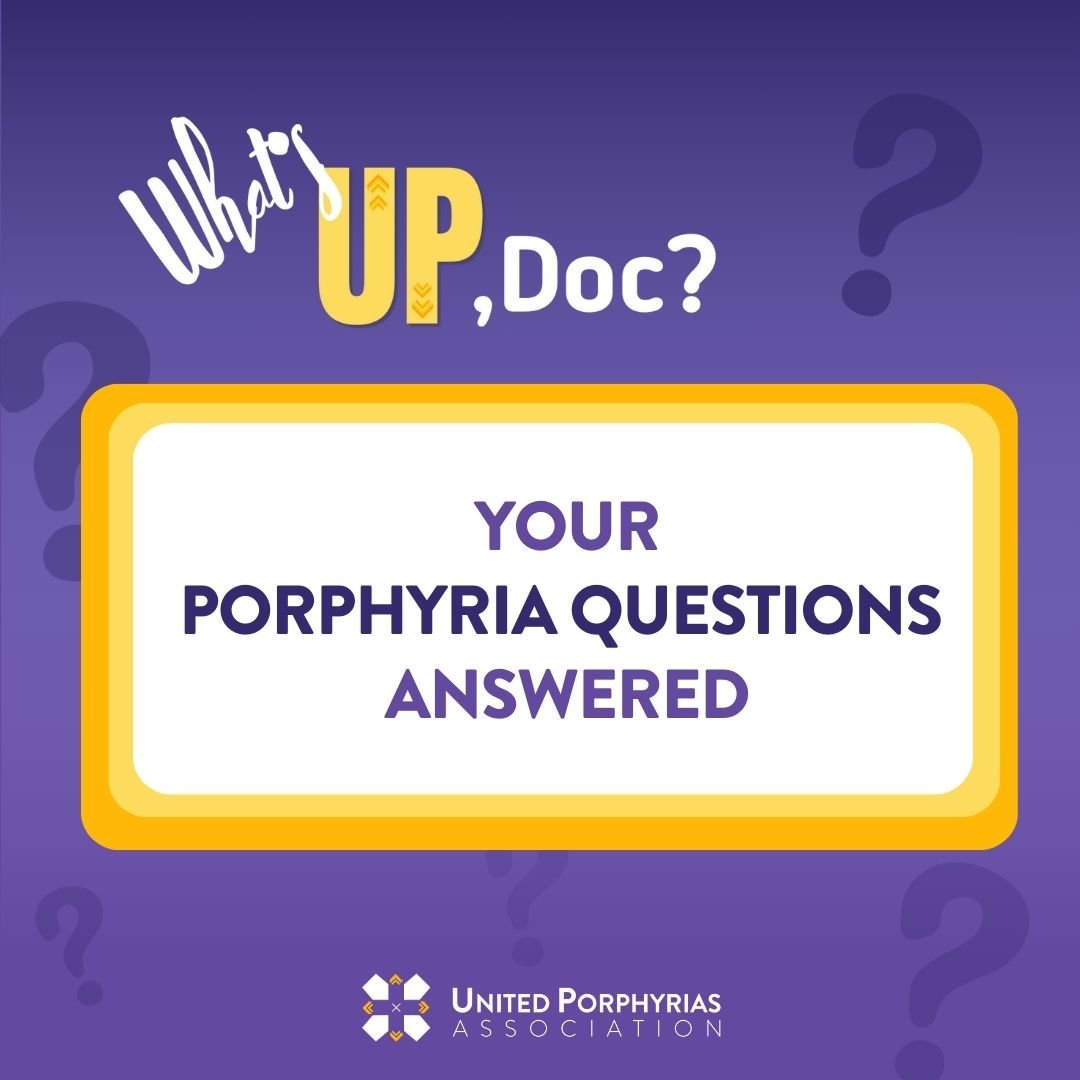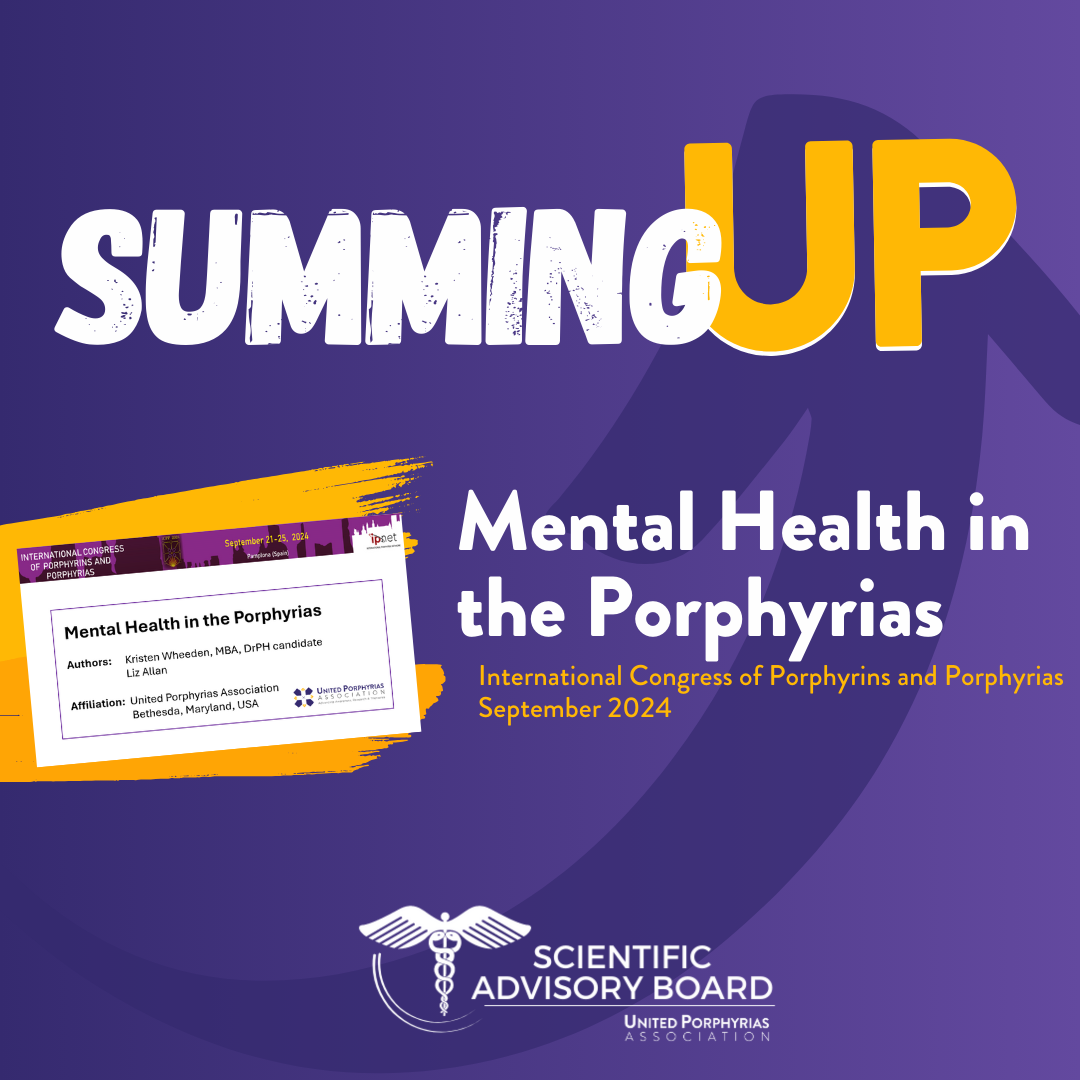
PCT
PorphyriaCutanea Tarda
Porphyria Cutanea Tarda (PCT)
Porphyria Cutanea Tarda is the most common form of porphyria in the United States.
PCT symptoms usually start in adulthood. Sun-exposed areas of the skin, most commonly face, hands and feet, develop blisters. Skin may also become fragile, darkened or thicken, people with PCT may have increased hair growth.
PCT is the only form of porphyria that does not always have underlying genetic mutation. Risk factors for developing PCT include excessive alcohol use, smoking, use of oral estrogens (such as birth control pills or hormone replacement therapy), hepatitis C infection, HIV infection, and a disease called hemochromatosis which causes iron overload.
About 80% of PCT patients have Sporadic PCT where there is no known gene changes. The remaining 20% have genetic change affecting one copy of the UROD gene, which is called Familial PCT, other risk factors are usually also present in this type of PCT.
The blisters and other skin symptoms of PCT look very similar to two forms of acute hepatic porphyria (variegate porphyria and hereditary coproporphyria), however the acute attacks that are seen in the acute porphyrias do NOT occur in PCT. Biochemical testing is required to confirm the porphyria type. Confirmation is important because the treatment and management of PCT is different from the treatment of the acute hepatic porphyrias.
PCT is caused by low levels of the enzyme UROD. The low levels of UROD enzyme causes porphyrins to accumulate because there isn’t enough enzyme activity to process them. Exposure to sunlight activates the accumulated porphyrins in the skin and results in blistering.
There are two types of PCT, one is inherited and called Familial PCT (caused by changes in the UROD gene), and the other is not inherited and called Sporadic PCT (with no known gene changes). The sporadic type is more common.
There are several risk factors for developing PCT symptoms, including:
Excessive alcohol use
Smoking
Use of oral estrogens (birth control pills, hormone replacement therapy, etc.)
Hepatitis C infection
HIV (human immunodeficiency virus) infection
A disease called hemochromatosis which causes iron overload
Skin symptoms appear on parts of the skin exposed to sun, most frequently the face, hands and feet. Symptoms do not appear until hours or days after exposure.
Skin blisters, sores or scarring
Fragile skin that may blister or peel after minor trauma (like a bump or scrape)
Discolored (excessively light or dark) scars
Excessive hair growth, particularly on the face
Porphyria Cutanea Tarda (PCT) is diagnosed using biochemical testing, starting with testing plasma and urine for elevated porphyrins. Additional testing is required to rule out other reasons that porphyrins may be high (ex. lead exposure) and other types of porphyria.
For more information on testing visit the Seeking a Diagnosis page.
PCT is treated either with regularly scheduled phlebotomies (removal of blood), or with a low dose of the drug hydroxychloroquine, a medication normally given for malaria. These treatments are generally equally effective, however patients with marked iron overload should be treated by phlebotomy rather than hydroxychloroquine, to correct both the PCT and the underlying iron overload.
These treatments generally work to stop symptoms within 6-9 months. Relapses that occur after the initial treatment can be treated successfully using the same approach as for initial treatment.
Patients should be tested to see if they have any of the risk factor infections, which should be treated if present. PCT caused by hepatitis C can be treated with one of the antiviral regimens to remove that specific risk factor.
The risk factors for developing PCT symptoms should be avoided while someone is having symptoms. Generally, after the successful treatment of PCT, blistering does not happen again, but in some people a recurrence of symptoms can happen. This is why it is important to follow-up with a porphyria specialist at least once a year.
Avoid risk factors
Avoid excessive alcohol consumption, smoking and oral estrogens.
Light Avoidance
Protect your skin from the sun by using sun protective clothing and avoiding prolonged sun exposure. Most conventional sunscreens are not effective because they do not block light in the blue-violet range, which is the type of light that triggers reactions in porphyria.
Abnormal liver function tests can be seen in people with PCT, but they are usually mild. PCT is often associated with hepatitis C infection, which also causes liver complications. However, liver tests are generally abnormal even without hepatitis C infection. Some people with PCT can develop cirrhosis (chronic liver damage and scarring) and even liver cancer.
Only the familial form of PCT can be inherited, and even in this form people with PCT generally do not have any family members with symptoms. Familial PCT is an autosomal dominant condition. Autosomal means that the defect is not on the chromosomes that determine sex, and dominant means that one only needs to inherit one changed gene to have the disease.
Genes are inherited randomly, so a parent has an equal chance of passing on either copy of each gene. Since most Familial PCT patients have one changed copy and one normal copy, this means that each of their children will have a 50% chance of inheriting the changed copy and 50% chance of inheriting the normal copy.
More PCT Resources
Check out our Spotlight Porphyria blog for answers to common (and uncommon) PCT questions, updates on the latest research and more!

Get Connected
-

Get your questions answered
Our Patient Navigator can help you find porphyria specialist, access testing and treatments, and get your porphyria questions answered.
-

Find others who know what it's like
Connect regularly with small group of your peers! Groups are created around diagnosis and particular experiences/needs.
-

Talk one-on-one
Connect with a UPA Ambassador who understands what you're going through, because they've been there too.




